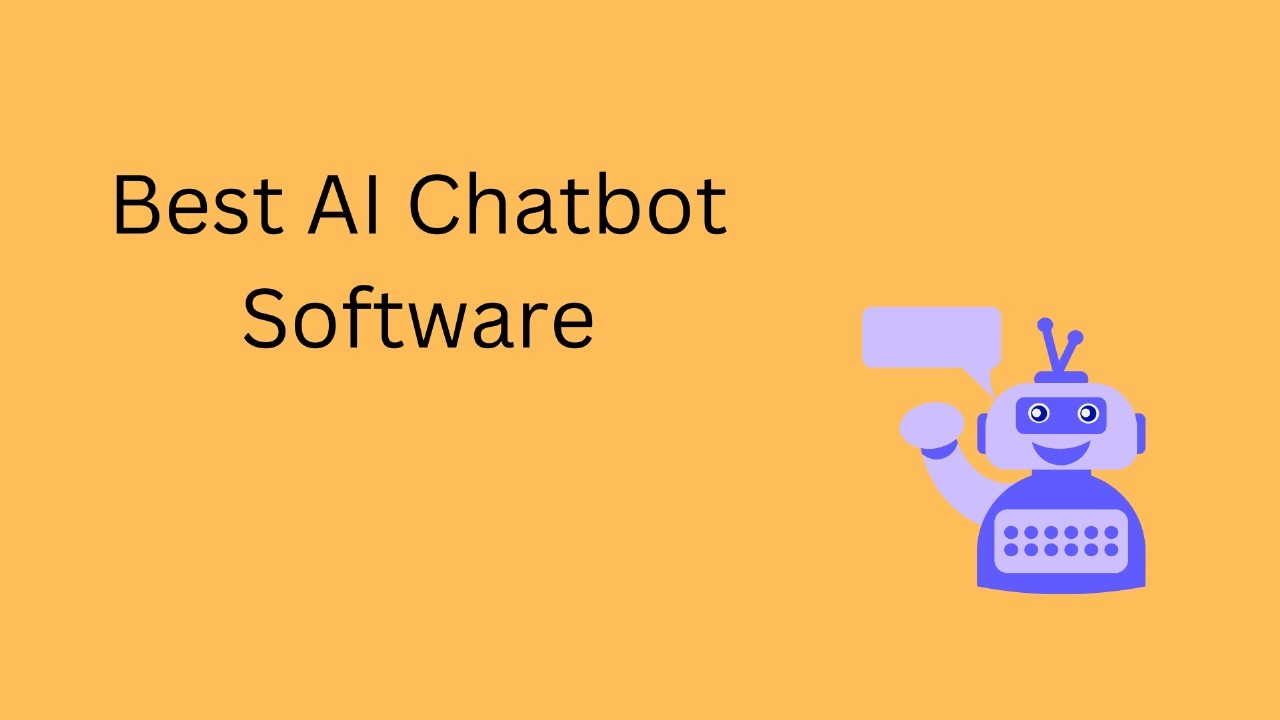Artificial intelligence has revolutionized customer service and business automation, making AI chatbots an essential tool for modern businesses. In 2025, companies are leveraging advanced chatbot software to enhance user experiences, automate tasks, and improve engagement. Below, we explore the best AI chatbot software of 2025, along with their key features, pros, and cons.
Here are the Top 10 AI Chatbot Software you should follow
1. DevRev
DevRev is a cutting-edge AI chatbot designed for customer support and developer engagement. With its seamless integration into DevOps tools, it ensures real-time assistance and collaboration.
Key Features:
- AI-driven customer support automation.
- Deep integration with product development workflows.
- Self-learning capabilities for better responses over time.
- Multi-channel deployment (Slack, Microsoft Teams, Web chat).
Pros:
- Helps bridge the gap between developers and customers.
- Reduces support tickets with automated solutions.
- Scalable for startups and enterprises alike.
2. Tidio
Tidio is a user-friendly AI chatbot that helps small and medium-sized businesses automate customer interactions effortlessly.
Key Features:
- AI-powered chatbot and live chat integration.
- Pre-built chatbot templates.
- E-commerce support (Shopify, WooCommerce, WordPress integrations).
- Multi-channel messaging (Facebook Messenger, Email, WhatsApp).
Pros:
- Easy to use with drag-and-drop chatbot builder.
- Affordable pricing for small businesses.
- Offers real-time website visitor tracking.
Cons:
- Advanced features require a paid plan.
- Customization is limited compared to enterprise solutions.
3. Drift
Drift is a conversational AI platform focused on B2B marketing, sales, and customer support automation.
Key Features:
- AI-driven lead qualification.
- Real-time website visitor engagement.
- Personalized chatbot responses based on user behavior.
- Integration with CRM tools like Salesforce and HubSpot.
Pros:
- Improves lead conversion rates.
- Provides detailed analytics for sales teams.
- Seamless omnichannel messaging.
Cons:
- Pricing is higher for small businesses.
- Requires integration for full functionality.
4. HubSpot Chatbot Builder
HubSpot’s chatbot builder is an intuitive tool for lead nurturing and customer support automation within the HubSpot ecosystem.
Key Features:
- Drag-and-drop chatbot builder.
- CRM integration for automated responses.
- Pre-built chatbot templates.
- Multi-language support.
Pros:
- Free to use with HubSpot CRM.
- Great for lead generation and customer support.
- No coding required.
Cons:
- Limited customization compared to dedicated chatbot platforms.
- Best suited for HubSpot users.
5. Intercom
Intercom provides AI-powered customer service chatbots that help automate workflows and improve customer engagement.
Key Features:
- AI-driven chatbot for sales and support.
- Integrates with third-party tools like Slack and Salesforce.
- Smart routing for human escalation.
- Knowledge base integration.
Pros:
- Enhances customer retention and engagement.
- AI-powered self-service solutions reduce workload.
- Multi-channel support.
Cons:
- Expensive for small businesses.
- Some learning curve for advanced customization.
6. Freshchat
Freshchat by Freshworks is a powerful AI chatbot solution designed for businesses looking for seamless automation and customer support.
Key Features:
- AI-driven chatbot for instant responses.
- Advanced analytics and reporting.
- Multi-channel messaging (email, WhatsApp, Facebook Messenger).
- Integration with Freshworks CRM and other tools.
Pros:
- Affordable pricing for businesses of all sizes.
- Customizable chat workflows.
- High scalability for enterprises.
Cons:
- Some advanced features require a paid plan.
- Limited free-tier capabilities.
7. Activechat.ai
Activechat is an AI-powered chatbot specializing in e-commerce automation and customer engagement.
Key Features:
- AI and NLP-driven responses.
- E-commerce automation for Shopify and WooCommerce.
- Integration with CRM and help desk tools.
- Visual chatbot builder.
Pros:
- Great for e-commerce businesses.
- Automates order tracking and FAQs.
- Enhances customer experience with AI-driven suggestions.
Cons:
- Not ideal for non-e-commerce businesses.
- Requires setup and training for advanced functions.
8. Infobip
Infobip is an enterprise-grade AI chatbot focused on customer communication and automation.
Key Features:
- AI-driven chatbots for WhatsApp, Viber, and SMS.
- Integration with CRM and cloud contact center platforms.
- Multi-language support.
- Rich analytics dashboard.
Pros:
- Ideal for large enterprises.
- Omnichannel communication support.
- AI-powered conversation automation.
Cons:
- Expensive for small businesses.
- Complex setup process.
9. Zendesk Chat
Zendesk Chat is an AI-powered customer service chatbot built for efficient ticket resolution and engagement.
Key Features:
- AI-powered automated chat responses.
- Integration with Zendesk Support.
- Proactive messaging for engagement.
- Multi-channel support.
Pros:
- Enhances customer service efficiency.
- Seamless integration with Zendesk products.
- Scalable for small and large businesses.
Cons:
- Higher pricing for full features.
- Requires Zendesk ecosystem for maximum benefits.
10. DialogFlow
DialogFlow by Google is an advanced AI chatbot development platform designed for natural language understanding and automation.
Key Features:
- AI-powered chatbot builder with NLP.
- Supports voice-based AI chatbots.
- Cloud-based integration with Google services.
- Multi-channel deployment.
Pros:
- Great for AI-powered automation.
- Supports advanced customization.
- Integrates with Google Assistant and other AI tools.
Cons:
- Requires technical expertise for implementation.
- Not ideal for beginners.
Final Thoughts
The right AI chatbot software depends on your business needs, whether it’s for customer support, e-commerce, lead generation, or automation. In 2025, the leading AI chatbots offer scalability, seamless integration, and advanced AI-powered features to streamline interactions and boost efficiency.
FAQs
1. What is an AI chatbot?
An AI chatbot is a software program that uses artificial intelligence and natural language processing (NLP) to simulate conversations with users and automate customer interactions.
2. Are AI chatbots expensive?
The cost varies based on the platform, features, and scalability. Some chatbots offer free plans, while enterprise solutions can be expensive.
3. Can AI chatbots replace human support?
AI chatbots can handle routine inquiries, but complex customer issues may still require human intervention.































